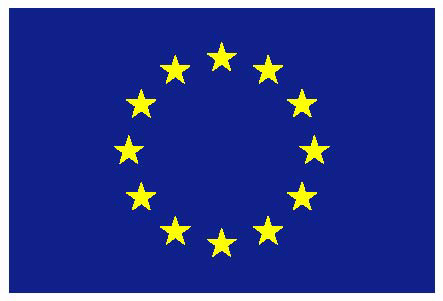JUST2CE
Transição justa para a economia circular
JUST2CE is based on the assumption that a critical evaluation of the CE paradigm, of its economic, societal, gender and policy implications, and of the outcomes of its implementation (which industrial sectors will benefit the most? Which stakeholders’ groups can be classified as winners and which one as losers) has not been conducted yet. A direct consequence of this gap is that the political economy and geopolitics of transition have been neglected in CE studies. European, and more in general global productive systems are characterised by geographical specialisation – e.g. extractive Vs productive economies; core-periphery and north-south relations – that seek to maximise profits along the traditionally designed linear supply chains. These, often unequal and asymmetric, relations might seriously hamper the transition to a CE. To date, no studies have shed light on how such relations should be reconfigured to achieve circularity. This represents an urgent and major research gap that will be addressed by this project, which will therefore provide useful insights to policy-makers for evaluating the feasibility of the transition to the CE. JUST2CE aims at understanding, in critical and thoughtful way, under which conditions a responsible, inclusive and social just transition to a circular economy is possible and desirable, what technical, political and social factors can enable or hamper such transformation and how these aspects can contribute to the development of transitional policy measures.
The conviction underpinning the project is that the success of a transition towards a sustainable circular economy does not merely depend on the development of new technologies - artefacts or processes - but also in the reconfiguration of the governance of productive processes into more democratic and participatory mechanisms of designing and managing technology.
1. Global Atlas of CE practices and initiatives;
2. A Cross-cases comparison report highlighting best and ‘worst’ practices, assessed against Global Environmental Justice and Gendered Innovation criteria; enablers/barriers as regards regulatory, governance-based, market, cultural, societal and gender/diversity aspects;
3. A report evaluating the impact on employment of a transition towards a CE in the 9 national contexts;
4. 3 Policy briefs summarising the results of the cross-comparison addressed at European and African policy makers, companies, cooperatives and civil society organisations;
5. Publicly accessible eBook entitled “A framework to design and implement responsible circular economy practices”;
6. A DSS publicly available on the project website;
7. Open-source code and documentation of the DSS;
8. Policy Briefs targeting EU and African Policy Makers.
UNIVERSIDAD AUTONOMA DE BARCELONA (UAB) (Coord.)
UNIVERSIDAD DE VIGO (UVigo)
THE UNIVERSITY OF SHEFFIELD (USFD)
UNIVERSITA DEGLI STUDI DI NAPOLI PARTHENOPE (UNIPARTH)
UNIVERSITY OF LEEDS (UNIVLEEDS)
UNIVERSITY OF CAPE TOWN (UCT)
KENTRO EREVNON NOTIOANATOLIKIS EVROPIS ASTIKI MI KERDOSKOPIKI ETAIREIA (SEERC)
AGENCIA DE RESIDUS DE CATALUNYA (ARC)
MEKELLE UNIVERSITY (EIT-M)
KUMASI HIVE (KUMASI HIVE)
SCIENTIFIC AND INDUSTRIAL RESEARCH AND DEVELOPMENT CENTRE (SIRDC)
AFRICAN CIRCULAR ECONOMY NETWORK (ACEN)
ENERGY@WORK SOCIETA' COOPERATIVA A R.L. (ENERGY@WORK)
O projeto JUST2CE recebeu financiamento do programa de investigação e inovação Horizonte 2020 da União Europeia ao abrigo do acordo de subvenção n.º 101003491
Giacomo D'Alisa
Joana Vaz Sousa
Paul Guillibert
Sérgio Pedro
Stefania Barca (coord)
Teresa Meira


